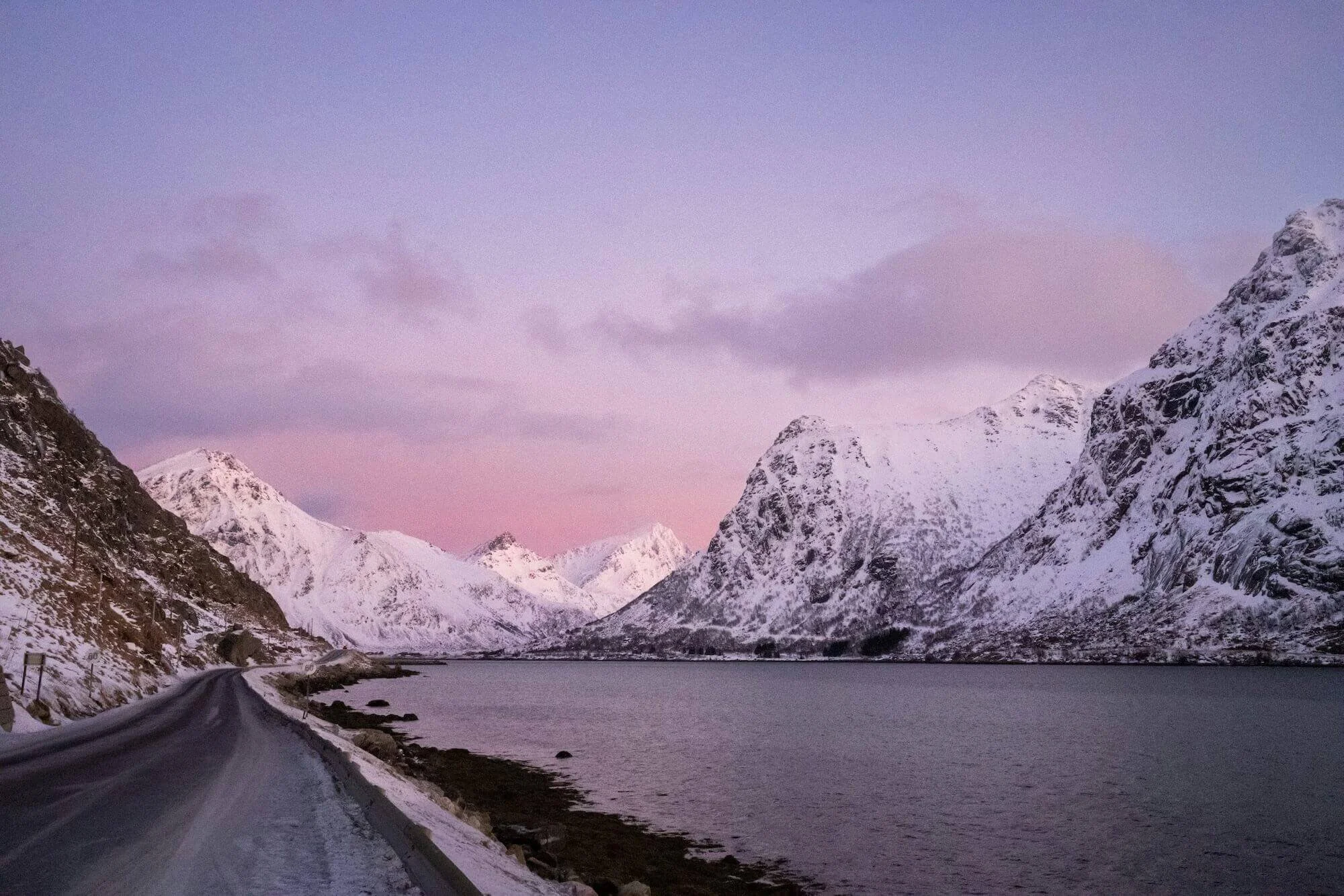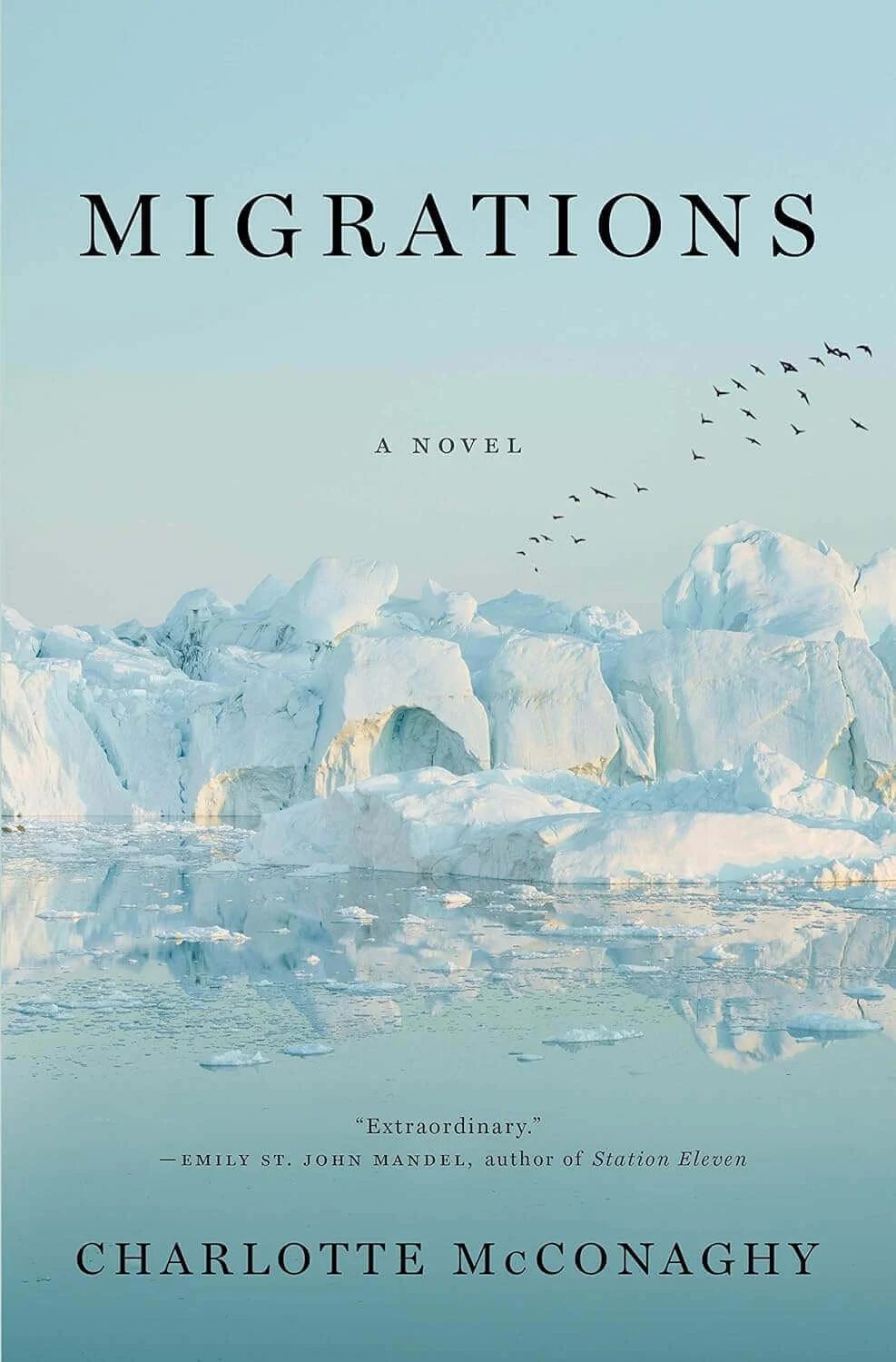Wild Dark Shore by Charlotte McConaghy: A Complete Review & Analysis
Charlotte McConaghy's Wild Dark Shore hit shelves in March 2025 and immediately became a phenomenon.
It debuted as an instant New York Times bestseller, claimed the #1 spot on Amazon's Best Books of 2025 (so far), and earned rave reviews from major publications.
But here's what matters more than the accolades: readers can't stop talking about it.
If you're wondering whether Wild Dark Shore lives up to the hype—or what authors can learn from McConaghy's success—you're in the right place.
This review goes beyond "did I like it" to explore what makes this book work, where it stumbles, and why it matters for your author journey.
Let's dive in.
What is Wild Dark Shore About?
Wild Dark Shore takes place on Shearwater, a fictional island somewhere between New Zealand and Antarctica. The world is drowning—literally.
Rising sea levels have forced researchers to abandon the island's seed vault, one of humanity's last-ditch efforts to preserve plant species for a future that might never come.
Left behind are Dominic Salt and his three children: teenage Raff (angry and heartbroken), middle child Fen (secretive and wild), and nine-year-old Orly (anxious and brilliant).
The family has six months to pack up the seed vault before a ship arrives to evacuate them for good.
Then a massive storm hits. When it clears, a half-dead woman named Rowan washes ashore.
She's the sole survivor of a sailing accident—or is she? As Rowan recovers in the Salt family's lighthouse, secrets begin surfacing like debris after a shipwreck. Sabotaged radios. A freshly dug grave. Conflicting stories about what happened to the researchers.
Everyone on Shearwater is hiding something, and the island itself seems determined to keep its secrets buried.
What Makes Wild Dark Shore Special?
This isn't just another climate thriller or family drama. McConaghy has created something that defies easy categorization—and that's precisely why it works.
The book operates simultaneously as a psychological thriller, a climate meditation, a family study, and a love letter to the natural world. Most authors would collapse under the weight of trying to do all four. McConaghy pulls it off because she never lets the "issues" overshadow the human story.
The climate crisis isn't a backdrop—it's a character that shapes every choice these people make.
You feel it in Rowan's decision never to have children after watching her home burn. You see it in young Orly's obsession with saving seeds while understanding that maybe nothing can be saved. You understand it in Dominic's fierce protectiveness of his kids even as he wonders what kind of future he's protecting them for.
The book earned comparison to Emily St. John Mandel's Station Eleven for good reason. Both authors create worlds teetering on collapse while insisting that beauty, connection, and hope still matter.
The Setting: Shearwater as Character
Let's talk about the island itself, because this is where McConaghy's writing truly soars.
Shearwater isn't just a setting—it's a presence. The island feels alive in a way that few fictional places achieve. McConaghy fills it with king penguins, elephant seals, albatross families, and weather that can kill you in minutes.
The prose here is sparse but stunning, like the landscape it describes.
McConaghy has a gift for nature writing that never feels overwrought. She knows when to zoom in (a seal pup's whiskers twitching) and when to pull back (the endless gray horizon where sea meets sky). The result is visceral. You can feel the salt spray, hear the wind screaming, smell the seaweed.
One reviewer described reading this book as "following the last people on Earth as they prepare to leave some part of their souls to the most beautiful place they'll ever know." That's exactly right.
For authors wondering how to make setting do heavy lifting in your story, Wild Dark Shore is a masterclass.
(I'll be diving deeper into McConaghy's setting techniques in an upcoming post—coming soon!)
The Characters: Broken but Believable
The Salt family feels real in a way that's almost uncomfortable. These aren't perfect people learning Important Lessons.
They're damaged humans trying to survive while carrying trauma they can barely articulate.
Dominic is haunted by his wife's abandonment a decade ago. He hears her voice in the wind—and the book never tells us if this is grief, mental illness, or something else. That ambiguity feels true to life.
Raff channels his pain into violence, punching a bag until his knuckles bleed because it's the only release he has.
Fen sleeps on the beach with the seals because connection with animals feels safer than connection with people.
Orly, at nine years old, carries the weight of climate anxiety that most adults can barely process.
McConaghy excels at writing children who feel like actual children—not miniature adults or plot devices.
Then there's Rowan, the mysterious stranger who might be the family's salvation or their doom. She's built walls so high that even she's forgotten what's inside them. Watching those walls crack is painful and necessary.
The characters' flaws make them compelling. Their secrets make them human.
The Writing Style: Sparse and Haunting
McConaghy's prose has been described as "spare," "haunting," and "evocative"—all accurate. She writes with restraint, trusting readers to do some of the emotional work.
This isn't a book that tells you how to feel. It shows you a moment and lets you sit in it.
The short chapters (some just a few pages) create a breathless momentum that matches the gathering storm.
You can't stop turning pages because you need to know what happens next, even when you're dreading it.
McConaghy also does something interesting with point of view. Dominic and Rowan narrate in first person, creating intimacy and unreliability. Orly speaks directly to Rowan. Fen and Raff are in third person, giving us slight distance while still accessing their inner lives.
This POV choice reinforces the emotional truth that parents and children experience the same events differently.
(I'll be breaking down her POV techniques in detail in another post—coming soon!)
The nature writing deserves special mention. McConaghy studied screenwriting before becoming a novelist, and it shows in her visual, cinematic descriptions. She knows how to make you see, hear, and feel a place.
The Themes: What It's Really About
On the surface, Wild Dark Shore is about a family on an island during a storm. But like all good literary fiction, it's about everything else too.
Climate change isn't just a plot device—it's the question that haunts every page: What do we save when we can't save everything?
The seed vault becomes a perfect metaphor. The Salts must decide which seeds to preserve and which to abandon. Some choices are practical (food crops survive; decorative flowers don't). Other choices are heartbreaking (do we save the plants that are beautiful but serve no “practical” purpose?).
This mirrors the choices we're making right now about our planet, our communities, our futures.
The book also wrestles with parenthood in collapse. Both Rowan and Dominic represent opposite extremes: Rowan refuses to bring children into a dying world, while Dominic pours everything into his kids despite (because of?) knowing the world is dying.
Neither approach is presented as right or wrong—McConaghy respects the complexity of that choice.
Grief and survival intertwine throughout. Every character is grieving something: a person, a home, a future, a version of themselves. The question becomes: How do you survive when survival itself feels like betrayal?
Trust is another major thread. In isolation, without outside systems or witnesses, can people trust each other? Should they? What happens when that trust breaks?
What Works (And What Doesn't)
What Works:
The atmosphere is flawless. From page one, you're on that island, feeling the isolation and the wind. The sense of place is so strong you could draw a map.
The pacing is exceptional. Those short chapters create genuine suspense. You keep reading because you physically can't stop.
The emotional core is powerful—these characters' pain feels real, not manufactured for drama.
The mystery structure keeps you guessing without feeling gimmicky. McConaghy doles out revelations at exactly the right moments.
The ending (no spoilers!) feels both surprising and inevitable. It honors the book's themes without being preachy or neat.
What Doesn't Work (For Some Readers):
The flashbacks can be confusing. McConaghy doesn't always clearly mark time shifts, so you might find yourself several paragraphs into a scene before realizing it's the past. Some readers found this disorienting.
The plot gets heavy in the second half. There are a LOT of secrets, a LOT of revelations, and a LOT of complications. A few reviewers felt it became slightly melodramatic.
Some readers wanted more resolution or clarity than McConaghy provides—this book trusts you to sit with ambiguity.
If you prefer neat endings where every question gets answered, this might frustrate you. McConaghy leaves space for interpretation, which some will love and others will find unsatisfying.
Who Should Read Wild Dark Shore?
This book will resonate most with readers who love:
Literary thrillers that prioritize character over plot twists. If you enjoyed books like The Push by Ashley Audrain or Our Wives Under the Sea by Julia Armfield, you'll likely love this.
Climate fiction that doesn't feel preachy. McConaghy never lectures—she just shows you a world and lets you feel the weight of it.
Nature writing that makes you want to protect the wild places while you still can.
Atmospheric, remote settings. If isolated islands, lighthouses, and harsh landscapes call to you, this book will feel like coming home (even if it's a dangerous home).
Books that ask hard questions without providing easy answers. This isn't feel-good fiction, but it's not hopeless either.
If you prefer fast-paced action, straightforward plots, or uplifting stories, this probably isn't your book.
It's contemplative, dark, and requires emotional investment.
What Authors Can Learn from Charlotte McConaghy's Success
Here's where things get interesting for those of us watching McConaghy's career trajectory.
Wild Dark Shore is her third adult novel. Her debut, Migrations, became a surprise bestseller in 2020. Once There Were Wolves (2021) built on that success. This book cements her as a major voice in literary fiction.
McConaghy's brand isn't tied to any single book—it's tied to who she is as a writer.
She writes about different things (arctic terns in Migrations, wolves in Scotland in Once There Were Wolves, isolated islands in Wild Dark Shore), but every book shares her DNA: remote locations, climate consciousness, damaged characters seeking connection, sparse beautiful prose, nature as character.
This is the power of building an author brand around your unique voice and obsessions rather than around a single book or series.
(I wrote an entire post about this concept that you can read here on my site—it's one of my core philosophies about author branding!)
Another takeaway: McConaghy took her time. She didn't rush to replicate Migrations' success. She published thoughtfully, building a reputation for quality over quantity.
In an industry that often pressures authors to publish faster, McConaghy proves that strategic, well-timed releases can build a sustainable career.
McConaghy's website reflects this approach too. It's clean, cohesive, and clearly positions her as a measured, thoughtful writer — without being locked into one book.
(I'll be analyzing her website design choices in an upcoming post—coming soon!)
Book Club Questions
If you're reading Wild Dark Shore with your book club, here are some discussion questions to dig deeper:
The title Wild Dark Shore can be interpreted multiple ways. What do you think the "shore" represents in this story?
Dominic hears his wife's voice in the wind. Orly hears voices of the dead. How did McConaghy's treatment of these supernatural elements affect your reading experience?
The seed vault forces impossible choices: which species deserve saving? How did this metaphor resonate with current climate conversations?
Both Rowan and Dominic have strong (opposite) feelings about bringing children into a collapsing world. Did your sympathies lie with one perspective over the other?
Fen's relationship with the seals, Raff's connection to whale song, and Orly's bond with the seeds—what do these relationships reveal about each character?
The island's isolation amplifies both beauty and danger. How does geographic isolation mirror the family's emotional isolation?
Trust is central to the plot. Did you find yourself trusting or distrusting each character? When did that shift?
The researchers abandoned the island. The Salts stayed. What does this choice say about different responses to climate disaster?
How would you categorize this book? Thriller? Climate fiction? Family drama? Literary fiction? Does it matter?
The ending (no spoilers!) asks readers to sit with uncertainty. How did you feel about the level of resolution McConaghy provided?
Take your book club deeper with the “Wild Dark Shore Book Club Guide: Discussion Questions + Author Career Insights” - coming soon!
Final Verdict: Is Wild Dark Shore Worth Reading?
Yes—with caveats.
If you're looking for escapist entertainment, this isn't it.
Wild Dark Shore asks you to confront uncomfortable truths about our planet, our choices, and what it means to hope when hope seems foolish.
But if you want a book that will stay with you long after you close it? If you want prose that makes you stop and reread a sentence just to feel how perfectly it captures a moment? If you want characters who feel like real people making impossible choices?
Then Wild Dark Shore is absolutely worth your time.
It's a book that respects your intelligence. It doesn't explain everything or tie up every thread. It trusts you to feel the story, not just consume it.
McConaghy has written something rare: a commercially successful literary thriller that doesn't compromise on either quality or accessibility. It's deep without being pretentious. It's suspenseful without being shallow.
For authors, it's also a blueprint for building a career on craft, consistency, and a clear authorial voice.
Keep Exploring
This is just the beginning of my deep dive into Wild Dark Shore and what authors can learn from Charlotte McConaghy's success.
Over the coming weeks, I'll be publishing detailed analyses of her atmospheric writing techniques, branding strategies, website design, and career trajectory. Each post will give you practical takeaways you can apply to your own author journey.
We’ll also explore how McConaghy succeeds at writing climate fiction—without alienating audiences—and analyze how the cover of Wild Dark Shore contributed to its success.
Whether you're working on your debut novel or your tenth book, whether you're building your first author website or rebranding for a new series, there's so much to learn from how McConaghy has built her career.
Because here's the truth: your brand isn't your book—it's you.
And the sooner you understand that, the sooner you can build a sustainable author career that grows with every project you publish.
Want to make sure you don't miss the next post in this series? Subscribe to my newsletter below, and I'll send you updates plus exclusive author insights you won't find anywhere else.















